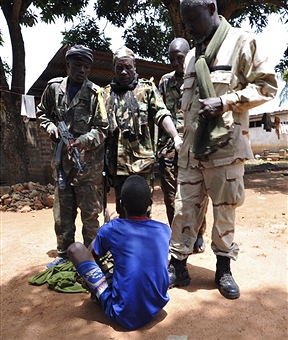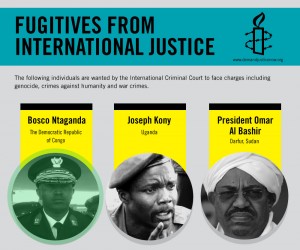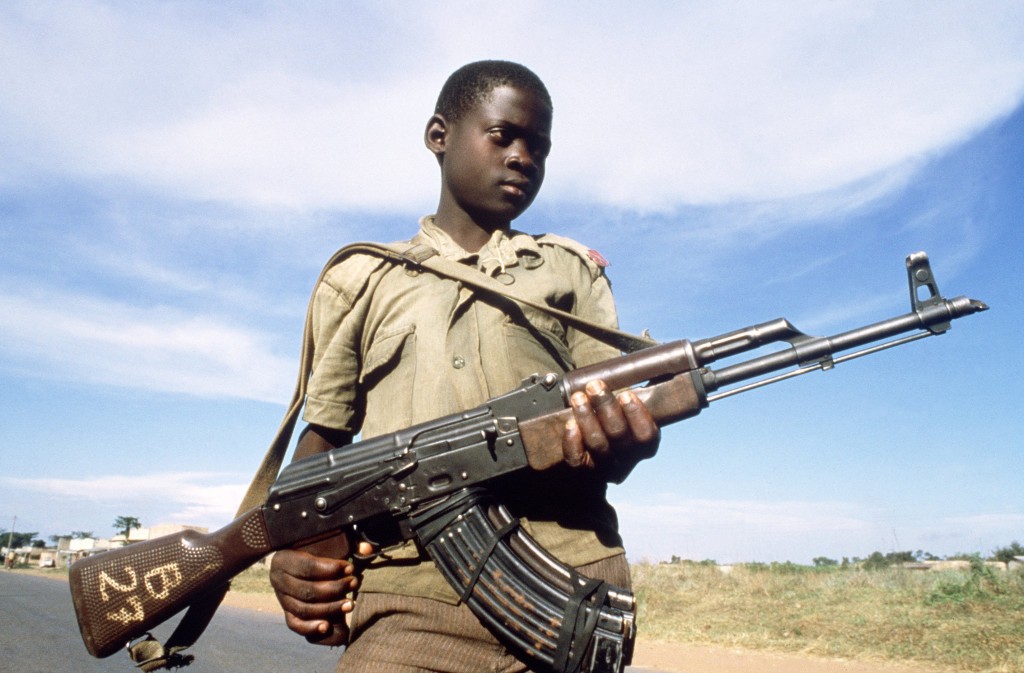
In December last year, five rebel groups from Northern CAR came together to form the über-rebel group Seleka (meaning “the alliance” in Sango, the national language of CAR) and began rapidly taking over towns in north and central CAR (Photo Credit: Sia Kambou/AFP/Getty Images).
By Natalia Taylor Bowdoin, AIUSA’s Central African Republic (CAR) Country Specialist
While the world recently celebrated when Bosco Ntaganda turned himself into the U.S. Embassy in Kigali and asked to be delivered to the International Criminal Court, a precarious human rights and humanitarian tragedy was unfolding in another little known corner of Central Africa, the Central African Republic (CAR). On Sunday, the rebel group, Seleka, succeeded in toppling the CAR government, sending the president, François Bozizé, into exile and the citizens of the country into crisis yet again.
CAR watchers were hardly surprised by this turn of events. Bozizé himself came to power through a coup in March 2003, ousting then-president Ange-Félix Patassé with the help of his Chadian friends. Shortly after coming to power however, many of his Chadian helpers became disgruntled. They and former supporters of Patassé split from the government, and along with other disparate elements in northern CAR, began to take to arms and form rebel groups. These rebels groups alternated between terrorizing, harassing and occasionally offering protection to local populations in exchange for loyalty and at great cost. The majority of the rebel groups agreed to come to peace talks in 2007 and 2008 with the Bozizé government and together they ironed out a path forward. Unfortunately, that path didn’t hold for long.

